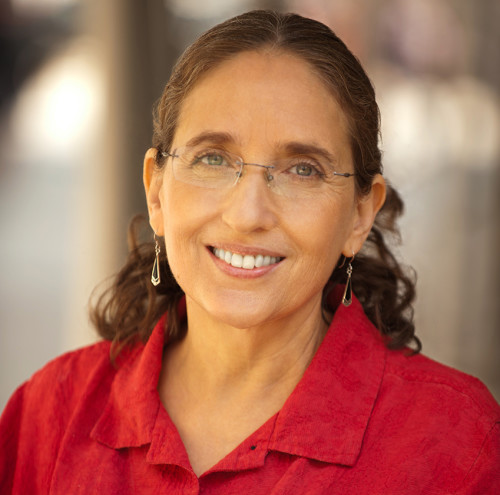
Ruth DeFries is a professor of ecology and sustainable development at Columbia University in New York and co-founding dean of the Columbia Climate School. She uses images from satellites and field surveys to examine how the world’s demands for food and other resources are changing land use throughout the tropics. Her research aims to contribute to realistic pathways for people and nature to thrive. A particular geographic focus is central India, which is globally important for tiger conservation and a hotspot for climate impacts on vulnerable populations. DeFries was elected as a member of the U.S. National Academy of Sciences, one of the country’s highest scientific honors, received a MacArthur “genius” award, and is the recipient of many other honors for her scientific research. In addition to over 200 scientific papers, she is committed to communicating the nuances and complexities of sustainable development to popular audiences through her books “The Big Ratchet: How Humanity Thrives in the Face of Natural Crisis and “What Would Nature Do?: A Guide for Our Uncertain Times”.
DeFries is committed to linking science with policy, for example through her involvement with the Environmental Defense Fund, Science for Nature and People, and World Wildlife Fund, She founded and continues to direct the Network for Conserving Central India.
Representative Recent Publications
Popular books:
DeFries, R. 2021. What Would Nature Do? A Guide for Our Uncertain Times. Columbia University Press.
DeFries, R. 2014. The Big Ratchet: How Humanity Thrives in the Face of Natural Crisis. Basic Books. 288 pp.
Silver, C and DeFries, R. 1990. One Earth, One Future: Our Changing Global Environment. National Academy Press. Washington, D.C. 196 pp. (translated into French, Portuguese, Arabic, and Japanese)
Scientific publications:
DeFries, R., M. Agarwala, S. Baquie, P. Choksi, S. Khanwilkar, P. Mondal, H. Nagendra, and J. Urpelainen. 2021. Improved Household Living Standards Can Restore Dry Tropical Forests. Biotropica.
DeFries, R., Ahuja, R., Friedman, J., Gordon, D., Hamburg, S. P., Kerr, S., Mwangi, J., Nouwen, C., Pandit, N. 2022. Land management can contribute to net zero. Science, 376 (6598): 1163-1165.
DeFries, R. and H. Nagendra. 2017. Ecosystem management as a wicked problem. Science, 356, 265-270.
DeFries, R., J. Fanzo, R. Remans, C. Palm, S. Wood, and T. Anderman. 2015. Metrics for land-scarce agriculture: Nutrient content must be better integrated into planning. Science 349:238-240.
Davis, K., A. Chhatre, N. Rao, D. Singh, S. Ghosh-Jerath, M. Poblete-Caenave, N. Pradhan, and R. DeFries. 2019. Assessing the sustainability of post-Green Revolution cereals in India. Proceedings of the National Academy of Sciences:1-8.
DeFries, R., Chattre, A., Davis, K., Dutta, A., Fanzo, J., Ghosh-Jerath, S., Myers, S., Smith, M. 2018. Impact of historical changes in coarse cereals consumption in India on micronutrient intake and anemia prevalence. Food and Nutrition Bulletin 39, 377-392.

